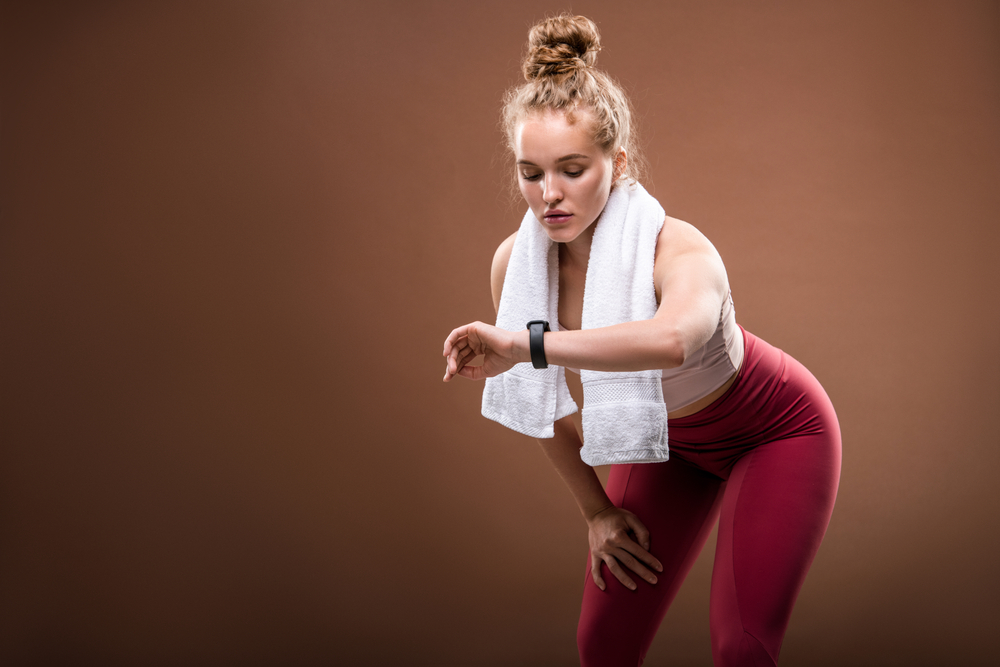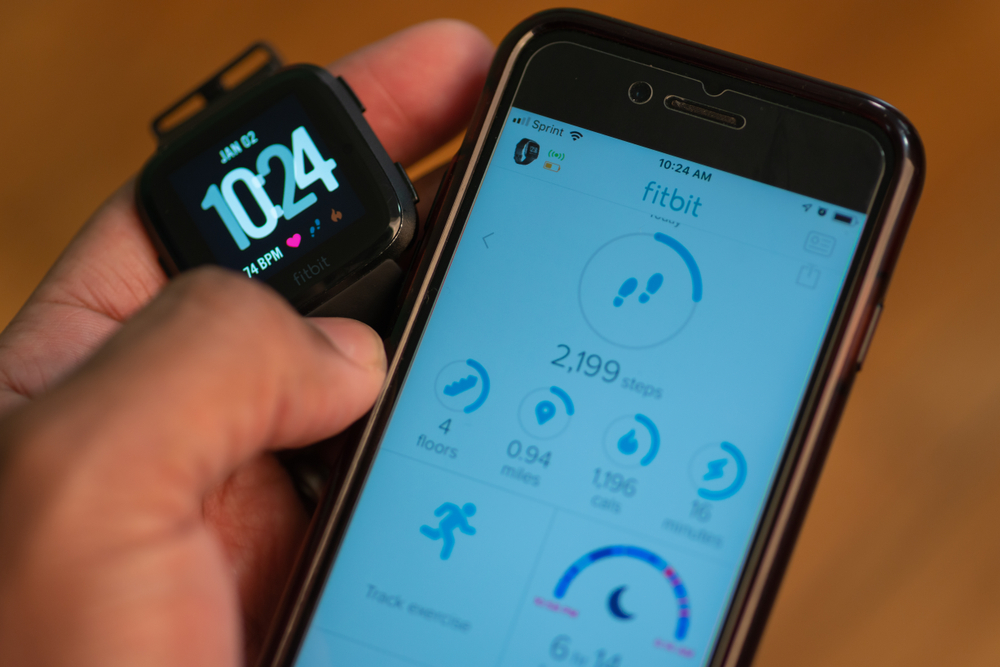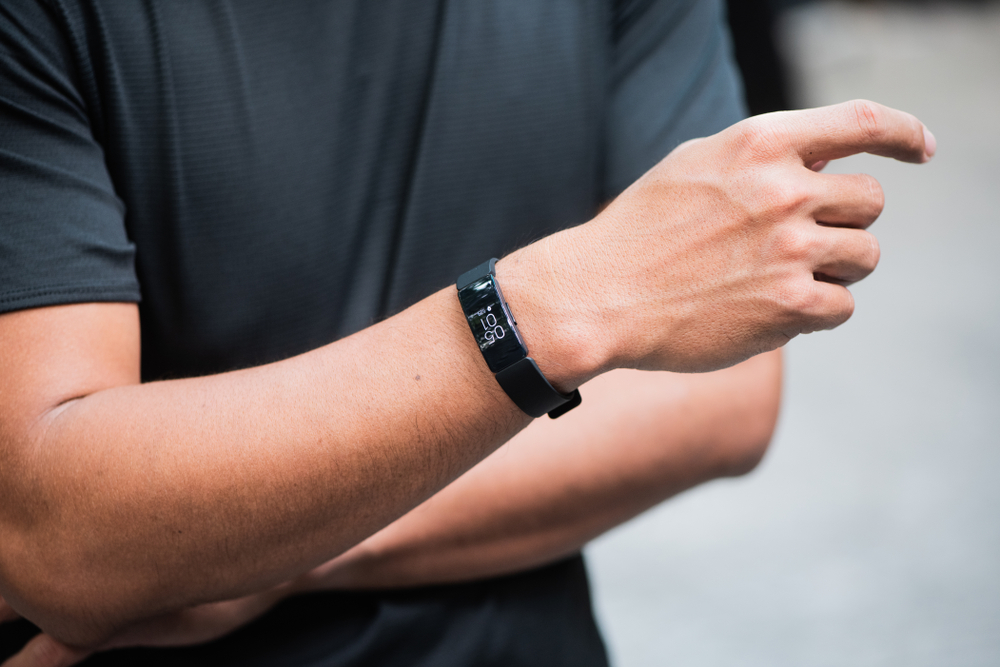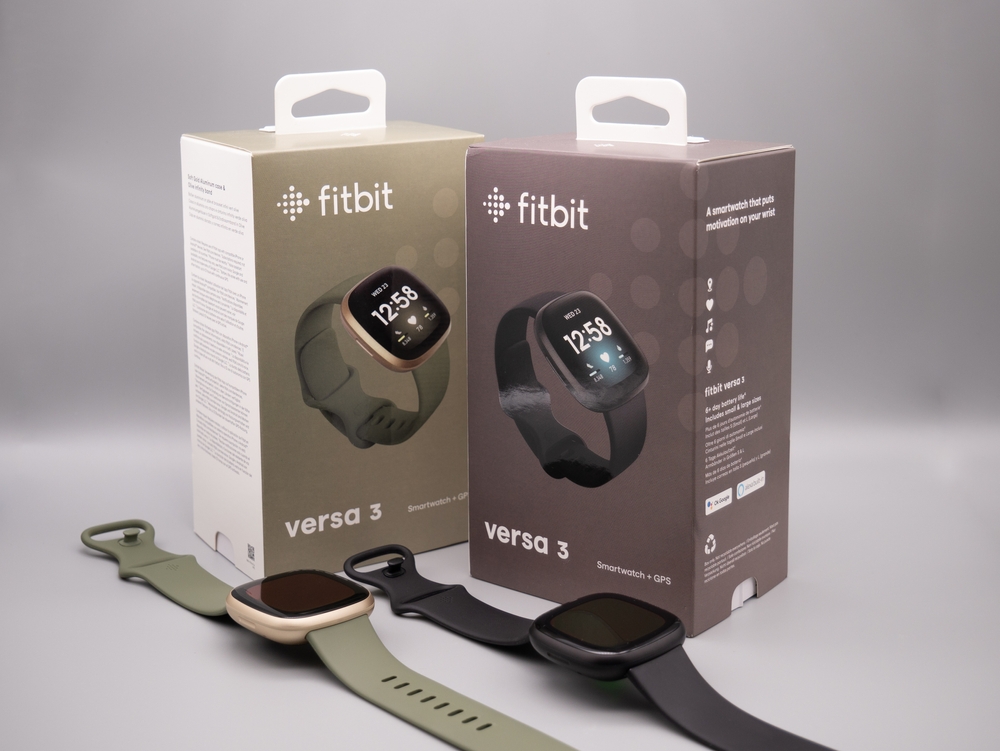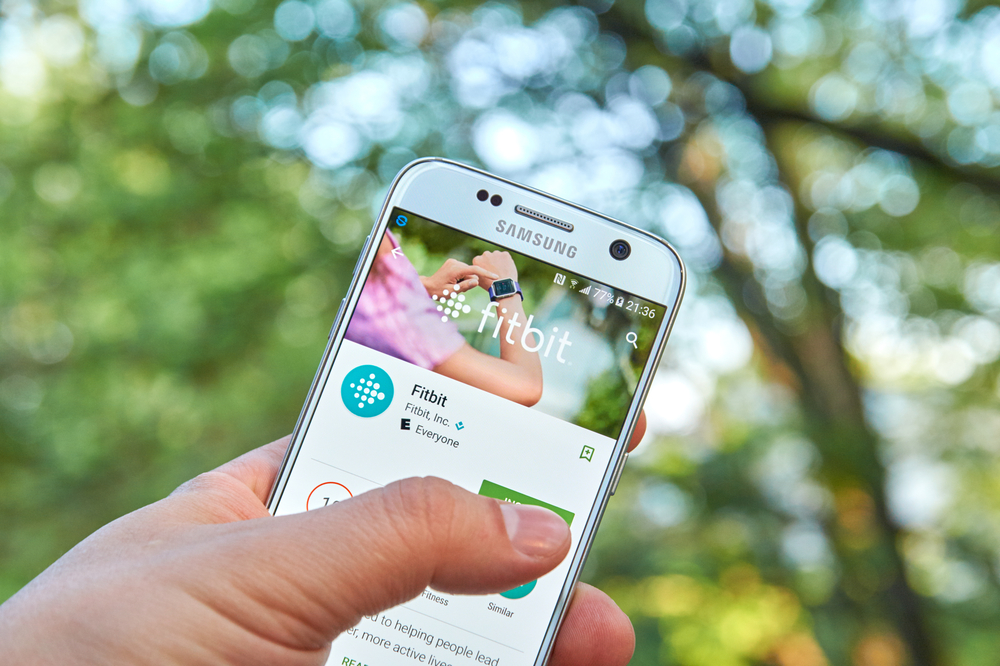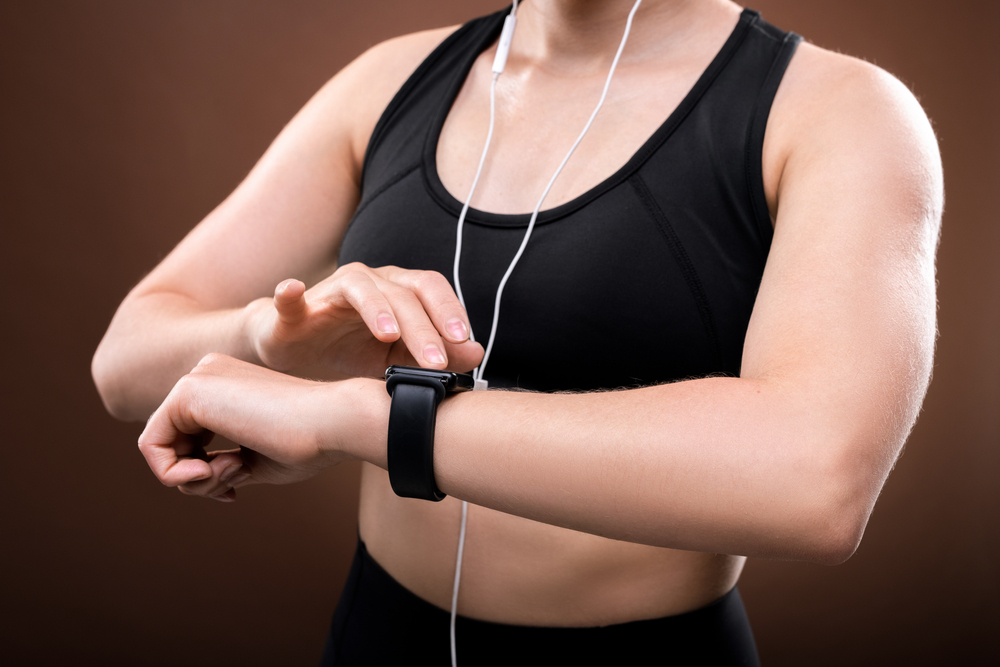Fitness trackers come in workout machines, as watches, and even as apps on cell phones now. When using any fitness tracker, you can expect to see a value of your calories burned. You may wonder just how accurate those representations of burned calories are.
Fitbit’s calories burned tracking is generally accurate and utilizes your basal metabolic rate and activity data. Fitbit does at times overestimate calories burned, but no fitness tracker is entirely accurate. To ensure accuracy, personalize your dashboard and heart rate zone when setting up your Fitbit Versa. To improve accuracy, remain active and update your weight as needed.
Ready to learn more about Fitbit’s burned calorie accuracy? If so, it is necessary to understand the system of tracking. We’ll talk about these things along with others that might impact the accuracy of your Fitbit’s calorie tracking. Let’s dig in!
Contents
- How Does Fitbit Calculate Calories Burned?
- How Accurate is Fitbit Calorie Burn?
- Are some Fitbit Models Calories Burn Count More Accurate?
- Does Fitbit Overestimate Calories Burned?
- What May Impact the Accuracy of Fitbit Calorie Burn Count?
- How to Improve the Accuracy of Fitbit Calorie Burn Count
- Alternatives to Fitbit Calorie Tracking
How Does Fitbit Calculate Calories Burned?
Fitbits combine your BMR, or basal metabolic rate, and activity data to help you track your calories burned.
Hold on, what is the BMR and what does that mean?
Your BMR is the base rate that your body burns calories at while sitting. You are always burning calories in one way or another to maintain vital body functions. Even at rest your body must still maintain a heartbeat, breathing, the pumping of blood, and other internal processes.
The Fitbit can track your BMR based on information you add into your account. This will include things like height, weight, sex, age, and other quantifying data.
Did you know that your BMR accounts for about half of your daily burned calories? Well, you do now.
Your activity will then be based off of your individual stats and BMR.
Finally, your Fitbit can estimate just what you’ve burned during a given workout.
How Accurate is Fitbit Calorie Burn?
Again, it is important to note that no fitness tracker is going to be accurate without fail.
When setting up a Fitbit Versa 2, you can and should customize things like heart rate zone and personalize your dashboard. Optimal results and tracking will come from setting up your smartwatch from the start.
Fitness trackers, like the Fitbit, work to estimate calories burned to provide you with relevant data. This should not be taken as accurate down to the last calorie burned.
Instead, you should try to use fitness trackers as a way to notice patterns of activity. This will help you to feel prepared and capable when going into workout sessions.
Are some Fitbit Models Calories Burn Count More Accurate?
Each model of Fitbit is slightly different, so accuracy will also change per model.
The newer the model of Fitbit, the more updated the hardware. This means that any Fitbits that are new and updated will consequently be better suited to track your calories burned in a reliable way.
So, just how do the different Fitbit models compare?
1. Fitbit Charge 2
- Mean absolute error of 5.96%
- Overestimates calories burned from a walk by over 53%
2. Fitbit Charge 4
- Mean absolute error of just under 10%
- Highly overestimates calories burned
3. Fitbit Charge 5
- Mean absolute error of 4%
- More accurate than the Charge 4 in terms of calorie tracking
- Still overestimates calories burned
4. Fitbit Versa
- Less expensive version of the Fitbit Versa smartwatches
- Comparable accuracy to other Fitbit Versa
- Overestimates calorie tracking
5. Fitbit Versa 3
- Said to overreport oxygen saturation
- Overestimates calorie tracking
6. Fitbit Inspire 2
- Overestimates calorie tracking by almost double
7. Fitbit Luxe
- Said to underreport oxygen saturation
- Not the best option in terms of fitness trackers or even of Fitbit in general
- Overestimates calorie tracking
Does Fitbit Overestimate Calories Burned?
Fitbit does often slightly overestimate the number of calories burned. It underestimates them occasionally, too, but the overestimation is the big thing to be aware of here.
In fact, almost every user review that you read will have wearers noting this overestimation of calories.
In comparison to other smartwatch brands, the Fitbit models in general have a bad habit of this calorie tracking style. They are constantly telling wearers they have burned more calories than they have.
Many Fitbit models overestimate calorie tracking by 27-53%, which is quite high.
Wearers do seem to be frustrated by this inaccuracy, and this may even cause them to switch to another brand.
What May Impact the Accuracy of Fitbit Calorie Burn Count?
Wrist placement
- If your Fitbit is not properly placed on the wrist, it could incorrectly monitor your heart rate. This would impact the calorie tracking as heart rate is a big factor of this tracking.
- You also should wear the Fitbit on your non-dominant wrist. This is so that hand movement like writing does not increase the tracked motion and overestimate activity.
Heart rate variability
- Heart rates vary from person to person, and Fitbit may not be able to get an accurate reading.
- This can also impact accuracy of tracking.
Being under active
- If you are too sedentary, you may find that your calorie tracking is underestimated.
- Your Fitbit won’t be able to get as familiar with your activity patterns. It may think that you are burning less calories than you are.
Being very active
- This might seem counterintuitive, but if you are someone that is very fit and active, overestimation increases. You might see your number of calories burned be far higher than when you use other smartwatches.
As you can see, there are many factors that will impact the accuracy of your burned calorie tracking.
How to Improve the Accuracy of Fitbit Calorie Burn Count
When looking to ensure that your Fitbit most accurately tracks your burned calories, there are some things you can do.
Taking the following steps will ensure that your Fitbit can best work for you and your needs:
- Stay active
- Any smartwatches, including Fitbits will be most accurate when you are doing a moderate to rigorous workout routine.
- The more you are active, the more accurate your tracker may be as it helps you notice patterns.
- Update your weight
- Ensuring that your Fitbit device is updated with your most current weight will give you best results.
- You’ll see that the calorie tracking improves when your personal information is most accurate.
Really, the main thing is to be aware of your personal goals and patterns as you continue along your fitness journey.
Alternatives to Fitbit Calorie Tracking
Fitbits may not be for everyone, and that’s okay.
Try one of these 3 other brands if you are looking for a different calorie tracking system:
-
Apple Watch
- The series 7 is Apple’s latest smartwatch
- Connects to your iPhone
- Tracks calories and other activity
- Stats are shareable to friends and family for accountability (and competition)
-
Samsung Galaxy Watch
- The Watch4 is the latest smartwatch
- Connects to your Samsung Galaxy phone
- Tracks calories and other daily activity
-
HUAWEI Band
- The Band 6 is the latest version of this smartwatch
- Connects to HUAWEI phone
- Tracks calories and other daily activity
These options are all relatively similar, with their main difference being the cell phone brands that they pair with.
Fitbits do, however, pair with these different types of phones. The Fitbit app will allow you to connect to most smart phones, making it the most versatile of the options.
